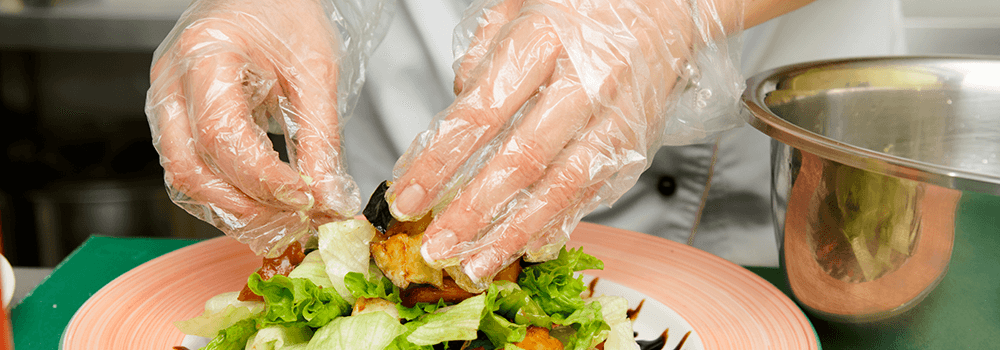Menu
Login
- SOLUTIONS
-
-
FRANCHISEES
-
FRANCHISORS
PARTNER VENDORS
-
-
-
- MARKETPLACE
- RESOURCES
- ABOUT
- SCHEDULE A DEMO
-

Food safety is among the top priorities for QSR franchisees because their reputation depends on it. So, when Chipotle experienced an E.coli, salmonella, and norovirus outbreak on three separate occasions within three years, franchisees took notice.
As a result of the outbreaks, Chipotle created an all-new food safety program to prevent future incidents. There's a lot to be learned from the company's new program, but first, you need to understand how these diseases and viruses spread.
Three of the most common foodborne diseases are E. coli, salmonella, and norovirus. E. coli and salmonella infections are caused by bacteria, and result in (usually mild) digestion distress. Both infections can be prevented through strict hand- and food-sanitation procedures and ensuring that eggs, meat, and seafood are cooked properly before serving.
Norovirus, on the other hand, is much harder to prevent, and the symptoms are much more severe. Norovirus is, as you might have guessed by the name, a virus — so sanitizing and hand washing have a limited effect. The virus can spread through food, water, and even air, so it's also much harder to stop. Norovirus is a QSR's worst nightmare.
Chipotle's food safety woes weren't caused by one bad apple. There were many systemic problems that caused these outbreaks. Chipotle's newly revised food safety program explains the eight steps the company is taking to re-earn customers' trust. These steps range from simple restaurant hygiene and food preparation policy updates to supply chain, technology, and leadership changes.
The program was a big change for Chipotle, and for good reason — they had a lot of work to do to re-establish the trust they had lost. You probably don't need to implement changes on the massive scale that Chipotle did, but there are still a few practices you can use in your own restaurants.
It remains to be seen if Chipotle will fully recover in terms of customer trust from its repeated food safety disasters, but they are still a powerful presence in the QSR industry, thanks in no small part to their robust food safety program. Learn from Chipotle's experience and implement some of these changes now, before a disease like Norovirus catches your restaurants off guard.
Delaget is the number one resource for QSR data aggregation and understanding. Smarter Wins.
PAR OPS' blog on operational strategies to grow your business faster.
Everything You Need to Know About Hiring & Retaining Teenagers During the 2021 Labor Crisis
Nickels and Dimes: 4 QSR Operational Money-Savers You Likely Haven’t Tried Yet
QSR Loss Prevention: 4 Ways to Prevent and React to Employee Theft